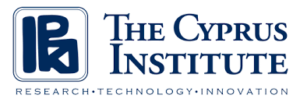Prime contractor
Task leadership and involvement
GMV is a privately-owned technological enterprise group with an international presence. Founded in 1984, GMV mainly operates in eight large sectors for both public and private organisations: Aeronautics, Space, Defence, Healthcare, Security, Transportation, Telecommunications and Information Technologies. GMV Space Geospatial Services business unit leads this project. Satellite data processing and analysis drive GMV’s core business, supported by in-situ data and environmental modelling, leverage upon advanced analysis techniques.
Subcontractors

- Conception and development of scientific analysis modules
- In duty of global inversion for CO2, SO2, NOx, NH3
- Contribute to regional inversions and point sources
- Contribute towards requirement gathering and analysis, validation and communication
The Laboratoire des Sciences du Climat et de l’Environnement – Institut Pierre Simon Laplace (LSCE-IPSL) is a joint research unit of CEA CNRS and UVSQ in France. The project will be managed by UVSQ (University of Versailles St Quentin). LSCE is part of Institute Pierre Simon Laplace (IPSL) a consortium of research labs near Paris working on environment and climate change. LSCE has a large experience in modelling of the climate system and modelling and measurement of the different components of GHG emissions.
KAYRROS was created in 2016 and supported by top tier investors and a Management team with global legitimacy and track records. Kayrros is the leading global Asset Observation Platform. Asset Observation takes Earth Observation to a new dimension: it fuses together all data available on a given industry asset, including satellite imagery, to provide reliable, frequent, accurate, geo-referenced, and time-stamped information on the status of selected physical assets.
As a global leader in consulting, technology services and digital transformation, Capgemini is at the forefront of innovation to address the entire breadth of clients’ opportunities in the evolving world of cloud, digital and platforms. Building on its strong 40-years specific expertise in the Space sector which covers the entire value chain, Capgemini is an enabler for the European space ecosystem to make real their ambitions through a wide panel of services from strategy to operations.
The Max Planck Institute for Chemistry (MPIC) from Germany was established in Mainz in 1949, and focuses on the chemistry of the atmosphere, climate geochemistry, multiphase chemistry, particle chemistry, and remote sensing for Earth system sciences. The satellite remote sensing group at MPIC lead by Prof. Thomas Wagner was established in 2006 and has large experience in the operation and analysis of UV/visible remote sensing measurements from ground or satellite platforms. One main focus is the development of spectral retrieval algorithms, the second focus is the interpretation of the retrieved results.
The Université Libre de Bruxelles (ULB) from Belgium is a multicultural university with one third of students and researchers from abroad. SQUARES is one of the 6 laboratories of the Chemistry Department at ULB. It is internationally renowned for its expertise in spectroscopy and quantum chemistry and has also acquired, in the last twenty years, a leading position in Europe in the field of atmospheric remote sensing and chemistry.
BSC is the national supercomputing centre in Spain and one of the four hosting members of the European PRACE Research Infrastructure. The Earth Sciences Department of the BSC (ES-BSC) was established with the objective of carrying out research in Earth system modelling, and focuses its activity on emissions, air quality, mineral dust and global and regional climate modelling and prediction.
The Cyprus Institute (CYI) from Cyprus is a non-profit research and educational institution with a “Centre of Excellence” in Climate and Atmosphere research (CARE-C) for the Eastern Mediterranean and the Middle East (EMME) region in cooperation with EU Advanced Partners. The Environmental Predictions department (EPD) of CARE-C is dedicated to the study of the role of anthropogenic emissions in biogeochemical cycles, air quality and climate change.
External data provider
VRIJE UNIVERSITEIT AMSTERDAM (VU) from the Netherlands is a general university in the Netherlands. The group involved on this project as an external service provider, works on the role of biomass burning in the Earth system with a specific focus on emissions and climate impact. Here fires are studied as an Earth System process using observations (including satellite data) and models and influencing ecology, the carbon cycle, atmospheric chemistry, and climate.









